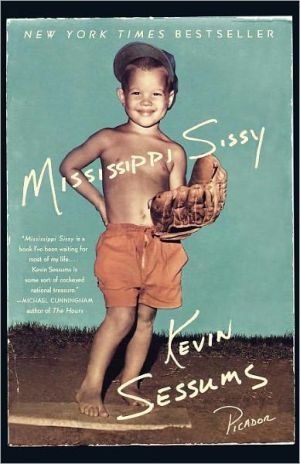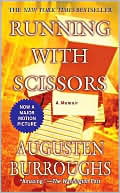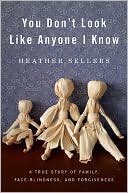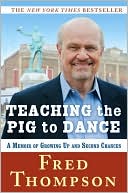Mississippi Sissy
Mississippi Sissy is destined to become an American classic\ In a book that echoes the time-honored fiction of Harper Lee and Flannery O'Connor and memoirs by Mary Karr and Augusten Burroughs, Kevin Sessums brings the American South and the experiences of a strange little Mississippi boy to life.
Search in google:
The celebrity interviewer finally turns the camera on himself Publishers Weekly This lovely, engaging memoir by acclaimed entertainment writer Sessums is not so much a gay coming-out story (although its author does discover and act upon his homosexuality) as an investigation of the effects of popular culture on a young, white boy growing up in the racist South in the 1950s. Sessums, who has written for Vanity Fair, Interview and Allure, was born in 1956 and raised outside of Jackson, Miss., by loving parents (although his father wished him to be less effeminate) both of whom died before his 10th birthday. But the heart of Sessums's memoir is how Hollywood and Broadway stars were obsessions and guide posts to a different life, and how female icons (such as Dusty Springfield and Audrey Hepburn) were important role models as he became part of a gay community. At times the prose can be preeningly literary as when Sessums describes his mother and her friends as "they carefully rubbed Coppertone suntan lotion on their smooth and lovely backs, their jutting shoulder blades like the nubs of de-winged angels grubbing around down here on earth." But at other times he can be emotionally shocking and precise as when recalling how, at 16, he hears his older friend Frank Hains tell a delighted Eudora Welty about his affairs with "young African-Americans." A marked detour from the often repetitive coming-out memoir, Sessums's story offers wit and incisive observation. (Mar.) Copyright 2006 Reed Business Information.
Mississippi Sissy\ \ By Sessums, Kevin \ St. Martin's Press\ Copyright © 2007 Sessums, Kevin\ All right reserved.\ ISBN: 9780312341015 \ \ \ Chapter One Skeeter Davis, Noël Coward, and Eudora Welty “Fuck,” said Frank Hains. “I knew I shouldn’t have given that last bourbon to Eudora.” It had taken me almost a decade after that day of my mother’s funeral, but I had finally found the only equivalent that Mississippi offered to a What’s My Line? life. Frank—a John Daly–like presence in Jackson—was the arts editor of the state’s afternoon newspaper, for which he also wrote a column called “On Stage.” Eudora was writer Eudora Welty. We were at a cast party for New Stage Theatre’s latest production, Long Day’s Journey into Night, starring Geraldine Fitzgerald as Mary Tyrone. Frank and Miss Welty were active members of New Stage, and he was playing host that night at Bleak House, the name given facetiously to his antebellum home by the local literati of Jackson. The Dickensian nickname derived from the house’s outward appearance of haunted dilapidation where it sat, rather spookily, on a hill opposite Jackson’s lone Jewish cemetery. Inside, however, past the vast front porch, Frank—also a gifted set designer—had redone his home with a lovely simplicity. Books abounded. A collection of vintage LPs filled one whole room, alphabetized and all of themencased in brown paper sleeves. Even though he had this wide selection of music, he usually only played Mabel Mercer, his favorite, or Erik Satie or Blossom Dearie. He also liked Fred Astaire—for his voice, not his dancing—which was so like Frank; he was always looking for the different angle, the way to appreciate an artist or a piece of art in his own way so that appreciation itself became a kind of art form. There was even a Leontyne Price album of pop songs arranged by André Previn he loved to listen to for some rueful smiles; especially the Mississippi diva’s rendition of “Melancholy Baby” with Previn on the piano and Ray Brown on bass. On the night of that latest cast party he was playing, as a tribute, a lot of Noël Coward, who had died the month before. Frank Hains went to New York City several times a year to review theater and opera for his newspaper and had begun to allow me to stay at Bleak House in his absence. He also subscribed to After Dark magazine, and I would peruse the pages of the slender and sleekly photographed issues when I visited him for their overt appeal to the kind of eroticism I had begun to seek out anyplace I could find it. Frank would stand over my shoulder when a new After Dark arrived in the mail and point out his latest favorite photograph by Roy Blakey or Kenn Duncan and regale me with stories about Angela Lansbury, who was often featured in the pages, or Rudolf Nureyev, whom he insisted I resembled in some sort of Slavic/Southern sleight-of-hand. “I should be more supportive of the ballet,” he said once, staring at the latest photo of Nureyev that After Dark was running. “I’m much more at home in literature and drama and musical comedy and opera. Satie is just about the only thing I can stomach that doesn’t have a lyric. That, and Bach, but there’s a mathematical genius to old J. B. I find fascinating. I once had a crush on a mathematician when I was, like you, a college sophomore. I know—can you picture me a sophomore? Hmmm . . . why Bach and Satie? There’s a column in there somewhere,” he said, using one of his favorite phrases as he pushed his black-framed reading glasses atop his thin-haired head, a habit of his when a concept for a column occurred to him, as if he were helping his brain to see the idea floating about his skull back there around his bald spot. Frank’s kitchen in Bleak House was as big as most homes. Theatrical posters—along with several of the photographs that Miss Welty had taken of innately elegant dirt-poor Mississippians when she worked as a publicist for the Works Project Administration during the Depression—hung along the walls of the house’s “dogtrot,” the open hallway that runs through the center of so many Southern homes of the antebellum period. A couple of years earlier, Miss Welty had collected many of the photos of her Depression-era travels in a volume titled One Time, One Place. She always preferred to refer to them as “snapshots,” however, and recalled fondly the little Rolleiflex camera she toted around with her upon her return from her year in business school up at Columbia University, her eyes readjusting, expertly so, to the reasons that had drawn her back home. I had first met Frank and Miss Welty when I was still in high school. A mutual friend from Forest had taken me to a book party Frank had thrown for Miss Welty at Bleak House. Although I was only sixteen at the time, I had immediately been accepted into their fold. No eye masks were needed, I discovered, but there were other requirements. A liberal political bent helped. A sense of one’s own sensuality. Discernment certainly. And, most important, enough knowledge to know when to join a heady conversation or, better yet, simply to listen while others carried on one around you. I learned more sitting at Frank’s big round kitchen table than I ever did in any classroom as he and Miss Welty—who would wander over the few blocks it took to drive her blue Ford Fairlane from Pinehurst Street—went off on Richard Nixon or Vladimir Nabokov, but practically swooned over the poetic justness to be found in Jane Austen and somebody “just about the best” named Henry Green. They liked jazz, too—Miss Welty had done a lot of club-hopping in Harlem—and taught me that bourbon was never to be augmented by anything other than maybe an added ice cube if one simply must when yet another Mississippi August demanded such a dilution, and sipping at a slightly watered-down potation was the only reasonable exertion that such heat and humidity humanly allowed. Their refilled glasses—it was my honor to administer the respective cubes—fueled their conversation until they drifted sometimes, not often, from cerebral musings to those of the heart. They were mostly circumspect when discussing their lost loves. Frank would often allude to his “dusky endeavors,” as they had come to refer politely to his interest in young African Americans, some of whom had touched him deeply with their aspirations and narratives of maternal love. Miss Welty welcomed these stories of nuanced carnality, as Frank was careful not to tell her the details. One especially hot night under the glow of the big light that hung over his kitchen table, Miss Welty, her upper lip damp, did hint at the feelings she had for one young man long, long ago. Frank had tears in his eyes as she lyrically, elliptically, without ever admitting the depths of her own emotions but not denying them either, told us of a young poet who could obviously still summon a profound sadness within her all these years after he had moved away from Mississippi, from her, and taken up residence in San Francisco and Italy, places more “welcoming to his kind, to yours,” she told us as her voice came to a halt and she perhaps heard only his now lost one in the sudden comfort of her silence. She finished neither the carefully diluted story nor the freshly diluted bourbon in front of her, both making it too dangerous that night, she seemed to reason in her reverie, for her to drive back home to a house forever musty with familial love alone. Years later, my little brother, Kim—a Mississippi obstetrician/gynecologist who has also become a sculptor of some renown—presented to Miss Welty a bronze bust of herself. It was the last year of her life and she had taken up residence in the downstairs parlor of the house on Pinehurst. She was in ill health by then and no longer able to make it upstairs to the bedroom where she had written her short stories and novels, putting their freshly typed pages on her old bed, then cutting them up with a pair of sewing scissors before pinning the paragraphs and sentences back together as if literature of the highest order were indeed the piecework of her life. Many of her favorite books had been moved downstairs also and were scattered everywhere about her—lined on shelves, stacked on the floor, overflowing a loveseat. An autographed photo of President Bill Clinton sat framed on her mantel. Kim lifted her fragile body from her daybed and gently placed her in her motorized lounger. Her head fell back onto the chair’s giant pillow. “How can one accomplish this kind of work and practice the art of medicine at the same time?” she weakly asked him, her teeth slightly bucked as she began to smile in the exact smile-ready expression displayed in bronze before her. “I kept the bust in my clinic and worked on it between Pap smears,” Kim told her. A twinkle came to Miss Welty’s eye. “We should call it Between Paps then,” she said, always good at titles, even in her weakened state. Kim, relieved by her success at levity, attempted, with the bedside manner he had developed in his medical practice, to engage her in more conversation but words no longer issued from her with the ease they once had. She could remember incidents from years past, according to Kim, but had trouble with the flow of raillery that was a generational marker for a certain sort of gentlewoman of the South, of which she was one of the last and finest exemplars. He finally commented on her collection of short stories, The Golden Apples. The mention of that particular title sparked something deep within her. Miss Welty raised her head suddenly from her pillow. Her voice grew strong, assured. “Isn’t that lovely?” she asked him. “I stole that from William Butler Yeats,” she said and, without hesitation, recited the final stanza of Yeats’s “The Song of Wandering Aengus”: “Though I am old with wandering Through hollow lands and hilly lands, I will find out where she has gone, And kiss her lips and take her hands; And walk among long dappled grass, And pluck till time and times are done The silver apples of the moon, The golden apples of the sun.” She placed her head back on its pillow. She sighed, satisfied with this last rendition of her beloved Yeats she would ever get right. Kim compared his bronzed handiwork to what lay before him: her ancient brow, her white wisps of hair, flesh’s feeble decay. Reverie was all that was left her now. Were the words of that other beloved poet in her life haunting her still in the comfort of an even deeper silence? Was it he who had led her to Yeats in the first place? She turned toward the bronze for one last look. She stared into her own eyes. I had been discovered at an earlier party for A Midsummer Night’s Dream at Bleak House by New Stage’s artistic director, Ivan Rider, and cast in a subsequent production at the theater, which enabled me to be even more securely ensconced in the only cosmopolitan bohemia that Jackson, Mississippi, offered. I was at the height of my surly, shaggy-haired teenage beauty back then—more punk than Puck—which was exactly the type that the director was looking for to play the role of the deaf-mute Toby in Gian Carlo Menotti’s one-act opera The Medium. The production was a local sensation and enabled me to gain a drama scholarship to Millsaps College, the Methodist-supported school right up the hill from Bleak House. Frank not only designed the sets for New Stage, but also taught stage design at Millsaps and oversaw all scenic aspects for the productions of the Millsaps Players. He was even a lighting director, and Bleak House was scrupulously lit so that any guest looked lovelier in its environs. “Well, at least less haggard,” he once remarked when I pointed this out to him. Our friendship—though he was almost thirty years older than I—deepened during the two years we got to know each other. He cast me as the newspaper boy with whom Blanche Dubois desperately flirts in a production of A Streetcar Named Desire he directed at the Vicksburg Little Theatre. We would talk and talk in his Pontiac LeMans on those ninety-minute round-trips from Jackson to Vicksburg during the six weeks we rehearsed and performed the play. We became so close, in fact, he sprung an odd request on me while we were listening on the LeMans’s radio to a bare-bones country station. At first we had tuned in to the twangy numbers and corny, locally produced commercials as a sophisticated lark, but we discovered the longer we listened to that station, the less frequently our laughter came, and we had actually started to sing along with the weary reverence the now familiar lyrics called for. Frank got his start as a disc jockey over in Vicksburg and had a lifelong respect for the discipline and musical knowledge the job required as well as “the way a d.j. of any stripe must harness the mayhem of station life to soothe the listener into believing the lovely lie that there is order in this world.” He sometimes confessed that he was at his happiest spinning records all alone in his little glassed-in cubicle, way back then in 1956, the very year of my birth, as I liked to point out to him. “I have something I really must ask of you,” he had said that night on our drive back to Jackson, already blushing before the request could be made, his voice meekly skimming the surface of Skeeter Davis’s toughened alto singing a James Taylor song, which was barely audible now from the radio Frank had turned way down. “I have an old trunk locked up in my closet. It contains . . . well . . . it contains what some might consider . . .” He gripped the wheel tighter. “Itcontainswhatsomemightconsiderpornography,” he said, all the words rushing from him in a jumble and tumbling over that very last one. “There—I said it.” I turned my head and smiled out the window at the passing pines, an exit sign or two, some roadkill that looked like another opossum too slow to make it across both lanes of the Interstate. “Promise me, Kevin, that you will dispose of that trunk if anything ever happens to me. Promise me. My West Virginia family cannot find it upon my demise; they simply cannot,” he said. “Of course, Frank,” I assured him. Though he did not mean for such a request to be regarded as funny by me, it was certainly seeming that way at the moment. I tried not to, but I could not help myself: I started to giggle. Frank flipped up the volume of the radio just as Skeeter was going after her toughest James Taylor note. “Don’t you dare laugh at me,” he said. “Don’t you dare.” It was the only time I can remember his ever being curt as far as I was concerned. “I’m being quite serious. I’ve never been more serious. This is our secret. No, it is more than that. This, dear boy, is a confidence,” he said, imbuing the word with all the meaning he could muster as he launched into that haughty Mabel Mercer mode that could overtake him from time to time, one that seemed rather out of place in the presence of Skeeter. “I thought about asking Eudora, but there are limits to her empathy. I’ve watched you closely this past year or so since we’ve gotten to know each other. Don’t ask me why, but I trust you completely. You are remarkably free of judgment and yet you are preternaturally wary. It’s a nice combination. You seem to be spying right there out in the open all the time, right there in our midst,” he said, nailing me. “It’s quite disarming. Eudora even commented on it when she first met you. I asked her what she thought of you—I would not have included you in our sphere without her approval—and she said, ‘That child is so ripe with private assessments I’m surprised the skin hasn’t begun to bruise. Does he read?’ ” “Yeah, I read,” I said. “I read her fucking short stories. She’s no Flannery O’Connor.” “Thank God,” said Frank. “There’s all that Roman flimflam in Flannery. Eudora is more welcoming. You’ll see, dear boy. One reaches a certain age and all one longs for is to feel welcomed.” I turned and looked at Frank. Really looked at him. Skeeter was singing the Taylor lyric “All those lonely times when I could not find a friend,” and I knew in that moment I had found my first true one. I felt—there is no other word for it—such tenderness toward him as I noticed there were tears beginning to fill his eyes. But he held them back. He did not let them fall. He had too much dignity for that. Too much grace. Those are the two main characteristics that Frank Hains so effortlessly possessed, and to this day, when I am lucky enough to summon one or both of them at the most unexpected of moments, I am certain that it is he—ever ephemeral, ever Frank—who is present and enabling me to conjure such characteristics in my own less dignified, less graceful life. Just as I feel his hand still on my shoulder in those moments, I put my hand on his in that one. “I’ll get rid of that trunk if it means that much to you,” I told him. “Say no more.” And we never did. We never mentioned it again. Copyright © 2007 by Kevin Sessums. All rights reserved.\ \ \ Continues... \ \ \ \ Excerpted from Mississippi Sissy by Sessums, Kevin Copyright © 2007 by Sessums, Kevin. Excerpted by permission.\ All rights reserved. No part of this excerpt may be reproduced or reprinted without permission in writing from the publisher.\ Excerpts are provided by Dial-A-Book Inc. solely for the personal use of visitors to this web site. \ \
\ From Barnes & NobleA skilled interviewer who has coaxed secrets from the most close-mouthed celebrities, Kevin Sessums now dishes on his own profoundly strange southern boyhood in a novelistic memoir steeped in magnolias, mockingbirds, and pure southern gothic. Growing up in 1960s Mississippi (a hotbed of racism and homophobia), orphaned at an early age, and victimized by bullies and molesters, the "sissified" Sessums lived the life of a lonely outsider until he was befriended by arts journalist Frank Hains, a cultured white homosexual who became his mentor and role model. It was Hains's tragic murder at the hands of gay-bashing home invaders that gave Sessums the courage and confidence to confront his sexual identity, head north, and pursue his journalistic career. Alternately heartbreaking and hilarious, Mississippi Sissy opens a window onto a very particular time and place.\ \ \ \ \ From the Publisher"Sessums re-creates a colorful cast of characters. . . . [His] unique sensibility shines through . . . in his wonderful ear for language, and his eye for Southern foibles."—Elle\ \ "A charming but bracingly unsentimental work . . . Utterly compelling."—People\ \ "Heroic and heartfelt . . . [Sessums] describes situations with clarity and humility. . . . With no small amount of wit and grace, he captures life then as he saw and heard it."—Christina Eng, San Francisco Chronicle\ \ "With a patiently observant and chillingly sensual voice, Sessums has written an important memoir."—Matt Saldana, Jackson Free Press\ \ "Mississippi Sissy is a book I've been waiting for most of my life. . . . Kevin Sessums is some sort of cockeyed national treasure."—Michael Cunningham, author of The Hours\ \ \ \ Publishers WeeklyThis lovely, engaging memoir by acclaimed entertainment writer Sessums is not so much a gay coming-out story (although its author does discover and act upon his homosexuality) as an investigation of the effects of popular culture on a young, white boy growing up in the racist South in the 1950s. Sessums, who has written for Vanity Fair, Interview and Allure, was born in 1956 and raised outside of Jackson, Miss., by loving parents (although his father wished him to be less effeminate) both of whom died before his 10th birthday. But the heart of Sessums's memoir is how Hollywood and Broadway stars were obsessions and guide posts to a different life, and how female icons (such as Dusty Springfield and Audrey Hepburn) were important role models as he became part of a gay community. At times the prose can be preeningly literary as when Sessums describes his mother and her friends as "they carefully rubbed Coppertone suntan lotion on their smooth and lovely backs, their jutting shoulder blades like the nubs of de-winged angels grubbing around down here on earth." But at other times he can be emotionally shocking and precise as when recalling how, at 16, he hears his older friend Frank Hains tell a delighted Eudora Welty about his affairs with "young African-Americans." A marked detour from the often repetitive coming-out memoir, Sessums's story offers wit and incisive observation. (Mar.) Copyright 2006 Reed Business Information.\ \ \ \ \ Publishers WeeklyAs an eight-year-old boy coping with the horrific loss of his parents and a nagging sense of being "different" from his peers in the Mississippi town of Forest, Sessums assumes the persona of What's My Linepanelist Arlene Francis. "Call me Arlene!" he insists, and his grandparents—despite their rather reactionary stances in the realms of politics, religion and sexuality—manage to lovingly comply. In performing his electrifying coming-of-age memoir, Sessums adroitly introduces the cast of characters who shaped his journey. The vocal renderings of such memorable figures as the family's loving and devoted—as well as self-confident and determined—maid Matty May, who repeatedly recites "Poitier" as a mantra in the days and weeks following Sidney Poitier's 1963 Oscar win, resonate with remarkable clarity. Listeners accustomed to contemporary autobiographical titles should be forewarned that they are entering unapologetic gothic territory akin to that of Eudora Welty (a friend and mentor to Sessums) or even Flannery O'Connor. Raw human emotions of love and hate play starring roles, refusing to remain mere stage props. Simultaneous release with the St. Martin's hardcover (Reviews, Nov. 6). (Mar.)\ Copyright 2007 Reed Business Information\ \ \ \ \ Library JournalSessums, a contributing editor at Alluremagazine, understood instinctively that he was somehow different, somehow not the child his father wanted. One of his earliest memories is of requesting that his mother, grandmother, and aunts make him a skirt from the fabrics his mother was using to make herself maternity clothes. Sessums's father, a regional sports figure, wasn't thrilled by having "a sissy" for a son but did nonetheless love his child in a stern and a distant way. By the age of eight, Sessums had lost both of his parents. In many ways, his grandparents indulged his love of pop culture; they also understood that he was both homosexual and liberal long before either word became acceptable in polite society in Forest, MS. As a young man Sessums had the good fortune of being taken under the wing of Frank Hains and Eudora Welty-both of whom encouraged his love of the arts and literature. Finding himself accepted by a larger world, Sessums was able to turn his grief into writing and find the inner strength to build a life for himself outside of the region. Recommended for libraries with large collections of gay literature and Southern memoir.\ —Pam Kingsbury\ \ \








